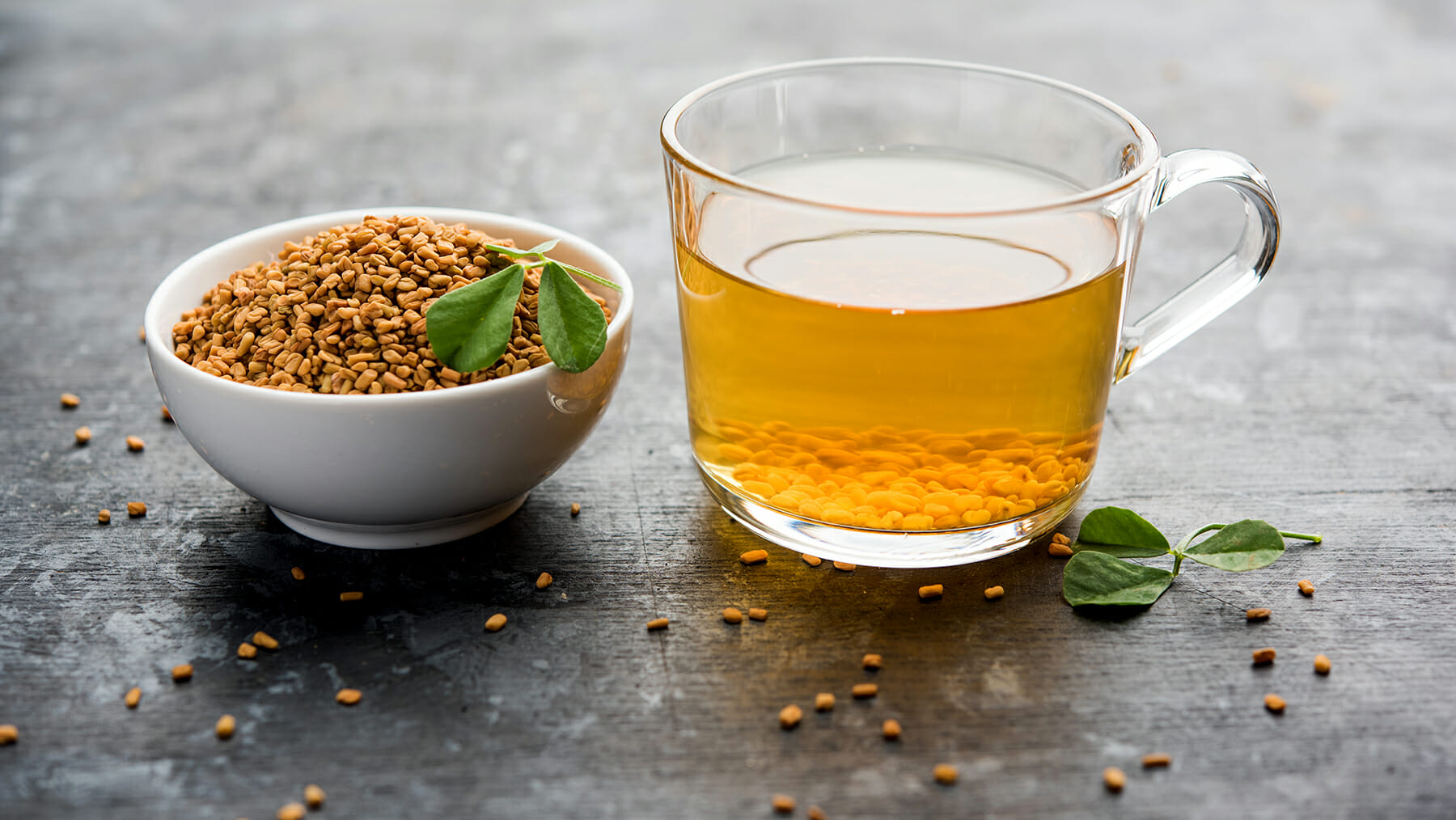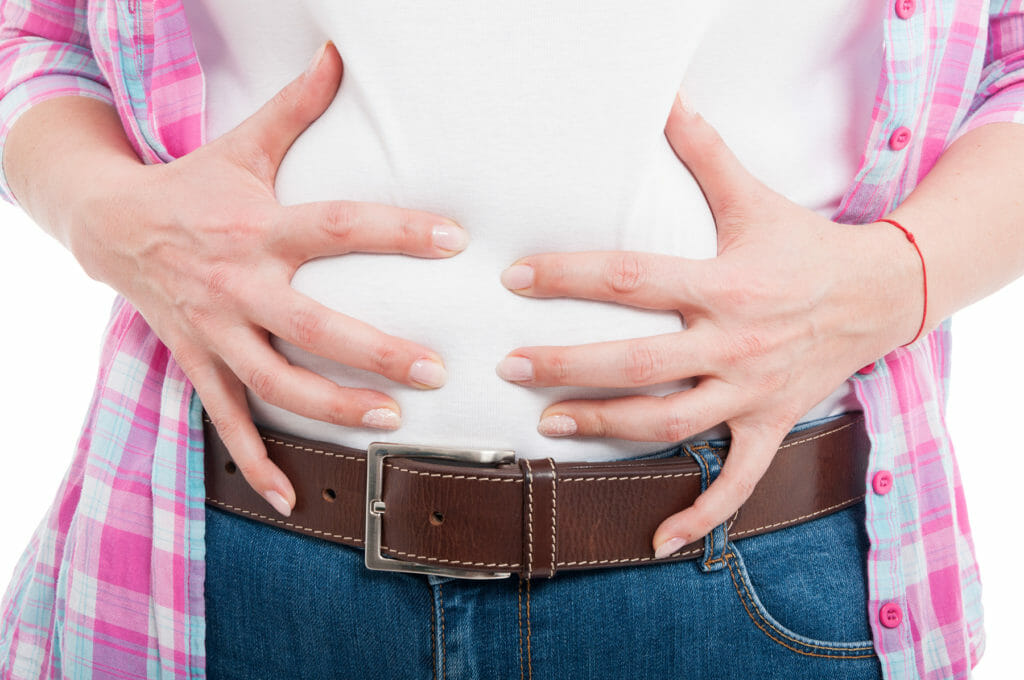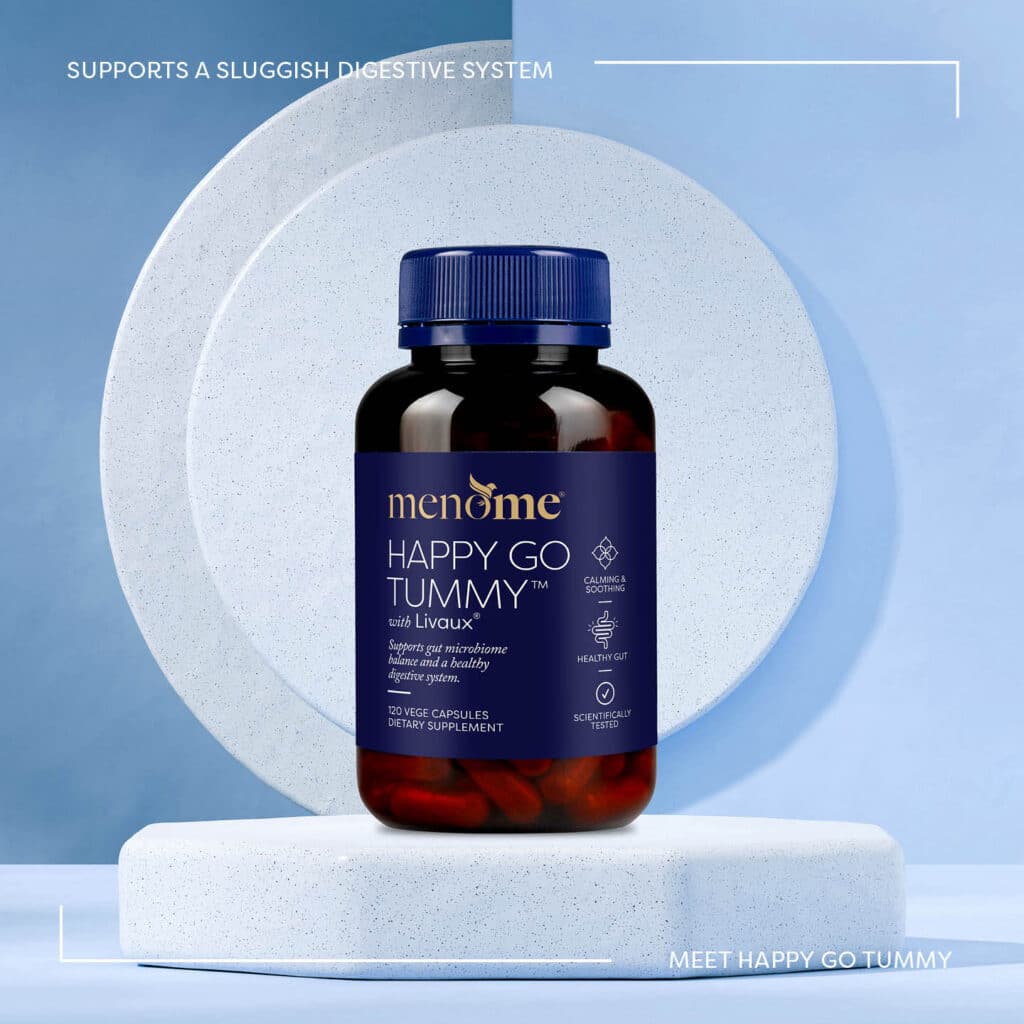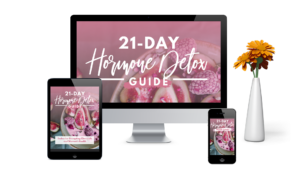Bloating during menopause. Grooooaaaaan.
When we reach the menopausal years so many things seem to physically change don’t they? All in all, it can be a bit of a minefield to navigate!
One of the common complaints we hear from women is that they’re feeling bloated. Subsequently, some have a mild experience while others feel three months pregnant.
Many of you ask if this is one of the signs of premenopause, perimenopause or post-menopause?
In a word, yes. It definitely can be.
What is bloating?
Bloating is a feeling of swelling or fullness accompanied by a distended, tight stomach. In short, bloating can be uncomfortable. And it’s certainly not ideal if you’re on an island holiday.
NB: constipation also leads to a bloated feeling. So ensure you’re regular by eating a diet rich in whole foods and soluble fibre. (Read: lots of fresh produce.)
Why does bloating occur during menopause?
There can be a number of reasons. As always, during the menopause journey, we need to look at fluctuating hormones. Especially estrogen. Estrogen is a major player for women’s bodies. And when it’s on a menopausal rollercoaster or decline it can cause water retention. This, among other things, may lead to bloating.
And it’s one more reason we emphasise the importance of good health and nutrition during menopause. Indeed, estrogen plays a role in bile production (liver), digestive enzyme production (gut), and insulin activity (pancreas). As estrogen declines, these systems don’t perform as well leading to issues such as gas and bloating durijg menopause.
So our digestive processes can slow down and our stomach acid also reduces.
In addition, during pre- and perimenopause uterine fibroids can develop and sometimes cause bloating during menopause. While fibroid incidence declines post-menopause it’s worth looking into by visiting your medical professional.
Watch: Digesting Midlife – How Gut Health Impacts Your Menopause Journey
What can you do about bloating during menopause?
Now for the good news. With a little bit of effort, you can make a huge (massive!) difference to your bloating issues.
1. Keep hydrated
I bang on a lot about the importance of drinking lots of water (filtered over tap is great). Importantly, it’s H2O that keep our bods working at their finest. Water flushes the kidneys, keeps our gastrointestinal tract moving and minimises water retention.
2. Move your body
Our old friend exercise is also our BFF when it comes to keeping things flowing – in not only our digestive system – but the entire body.
3. Avoid gluten, refined carbs and sugar
This is another one that I’m a broken record about. However, separately and together these can create a cascade of negative effects that lead to bloating. And consequently, a struggling digestive system.
4. Eat prebiotics and probiotics on the daily
These have become a famous aid for digestive health because they work. Loads of fresh vegetables filled with fibre feed the beneficial microbiome. In addition, fermented foods such as sauerkraut, kombucha and kefir are all goodies for increasing good gut bacteria. Indeed, so are high-quality supplements free of fillers. That’s why we have Happy Go Tummy®, it’s an all-in-one prebiotic/probiotic combo.
5. Chew your food
Did you know most of us don’t chew enough? The general consensus in health land is that we need to chew 30 times. While this can be a bit of a tall order being mindful of how we’re eating can make a difference. Indeed, some of us go almost straight to the swallow part! Take your time to chew because it’s easier on your digestive system. What’s more, you won’t be gulping air with your food which can lead to bloating.
6. Don’t eat so much
Weight gain is one of the biggest pain points we hear about during menopause. But it is something you can get a handle on (I promise). One way to do this while also being kinder to your digestion is to eat smaller servings.
7. Avoid ice-cold drinks and food
According to the ancient wisdom of Ayurveda ice-cold food and drink slow our Agni (digestive fire).
Do you know your trigger foods? It’s a good idea to keep a food diary for a while and track whether eating certain foods set you off.
Ayurvedic Digestive Tea
This digestive tea is delicious, aids digestion and minimises bloating.

It’s easy-peasy, inexpensive and the seeds are readily available.
- ¼ tsp coriander seeds
- ¼ tsp cumin seeds
- ¼ fennel seeds
- Boiling water
Grind the seeds. I make light work of it with an inexpensive coffee grinder I bought at Kmart for under $20.
Add it to a tea infuser or tea bag and dunk in boiling water. If you don’t have either of these they’re cheap as chips. Here’s a selection on infusers and fillable teabags on Amazon.
A dash of ginger and/or cinnamon can add a bit of extra flavour if you desire. And they have the added bonus of being wellness powerhouses. Think anti-inflammatory antioxidants. Just the ticket if you’re joints are giving you grief.
This Dukkah recipe‘s helpful too.
Enjoy!
NB: If you’re not experiencing gut issues ice-cold drinks can help regulate your body temperature in summer. Ideal if you’re battling hot flushes.
Disclaimer: Always check in with your doctor to rule out other possibilities such as irritable bowel syndrome or SIBO.
Suggested:
Try Happy Go Tummy®, it’s a symbiotic prebiotic/probiotic combination. And it’s packed full of antioxidants and the award winning Livaux®, a prebiotic from kiwifruit. Plus the probiotic is derived from fermented cheese*.
*Not suitable if you’re dairy intolerant.











